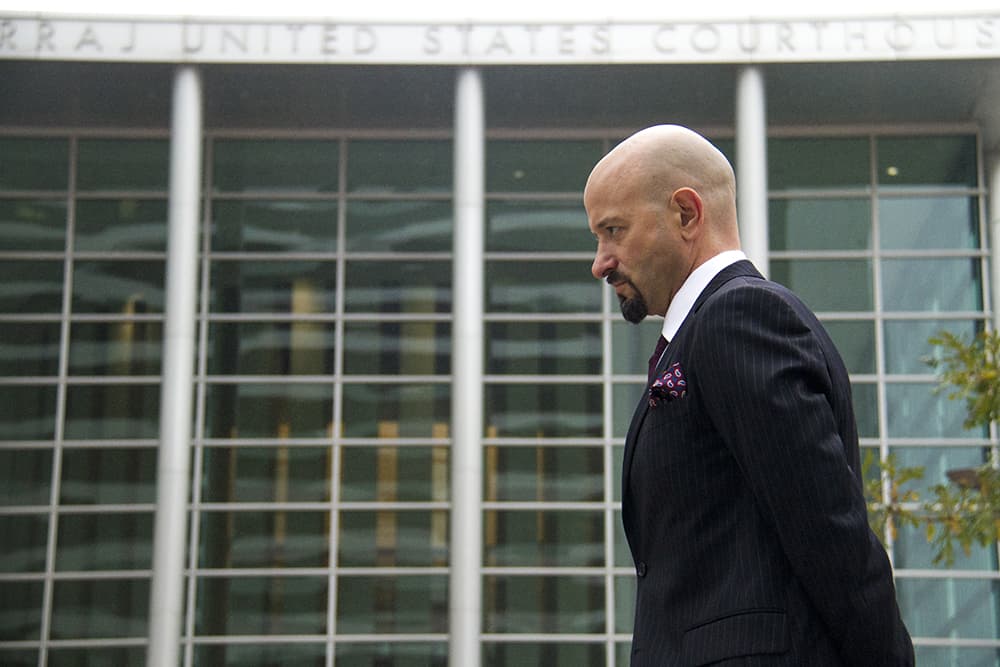City officials on Monday held the first advisory meeting required under a settlement that ended a class-action lawsuit over the way Denver clears encampments of people experiencing homelessness.
On hand among others were Britta Fisher, director of the city's new housing department; Assistant City Attorney Wendy Shea, who handled the class action suit for the city; and Evan Dreyer, Mayor Michael Hancock's deputy chief of staff.
In September, a federal judge signed off on a settlement in the lawsuit filed by people experiencing homelessness and their advocates who accused Denver of violating the constitutional rights of urban campers. Under the settlement, the city paid $5,000 to each of six lead plaintiffs. The city also agreed to give a week's written notice before clearing large-scale encampments; attach written notices to unattended personal property in areas it clears regularly and wait 48 hours before removing the items; and enact policies to ensure the return of property confiscated during clearances.
Meetings like Monday's on the top floor of the Central Library at 10 West 14th Ave. Parkway in Civic Center are to be held quarterly under the settlement to ensure top officials hear from people experiencing homelessness about whether the terms of the settlement are being upheld. The next meeting is in March. A date has not yet been set.
Time was spent during Monday on process questions, such as how the city should spread word of subsequent meetings and ensure agendas cover items people experiencing homelessness prioritize. Suggestions for the former from people experiencing homelessness included sending emails to people on housing waitlists. On the latter, it was proposed that a role could be played by peer navigators based at the Central Library who help connect people experiencing homelessness to services. Could they set up a box to collect proposed agenda items?
"That'd be fine," said Carla Respectsnothing, a library peer navigator who attended the meeting.
Lance Limper was among about 50 people experiencing homelessness at the meeting. He sat near the door of the library conference room, holding a black notebook in which he had been chronicling his and his wife Tracy Walker's experiences with clean-ups. A week ago, he said, Walker's dentures were discarded by city workers clearing a camp the couple had set up at 27th and California in Five Points.
"That's wrong," Limper said.
He said they had been given a 48-hour notice, as the settlement required. The next day they got another 48-hour notice, leading Limper and Walker to assume they had extra time. Their assumption was incorrect.
"I've missed two interviews the past month because I had to pack up and leave," Limper said, describing constant encounters with police officers under Denver's urban camping ban.
City officials at the meeting said Denver was making changes to its shelter system to better accommodate people who were working or looking for work, and setting up an on-line database people can check to determine whether the city is storing their belongings after a clean-up.
Officials also said new lockers were coming, as the settlement required. Parks staff described the process for applying for discounted membership at the city's recreation centers, where people experiencing homelessness can shower.
The Department of Public Works, whose staff perform the clean-ups, did not have a representative at the meeting. Assistant City Attorney Shea said afterward that someone from Public Works would be at the next meeting.
"Maybe even more than one person," she said, adding that issues and concerns around the clean-ups might lead the agenda next time.
Issues beyond the settlement came up Monday.
"Freeze all the rents for at least four to five years," Marie Antoinette Black proposed during the hour-and-a-half meeting.
Black went on to detail the economic stresses that can lead to sleeping on the streets, as she is doing.
"Now that I got a raise, my rent went up. Now that I got a raise, my groceries went up. Now that I got a raise, the gas went up."













